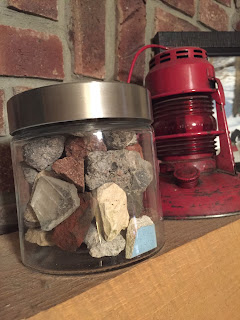 |
| Digilit Sunday |
Today I am participating in Digital Learning Sunday with Margaret Simon at Reflections on the Teche. This week Margaret has encouraged us to write about agency.
It is funny how when a topic is chosen, it seems to turn up in my teaching life. Or maybe it is because I am more open to looking for the topic of discussion.
Yesterday I had the privilege of watching two live sessions of The Edcollab Gathering. The first was Katherine Bomer's session about writing essays, the topic of her new book, The Journey is Everything. She talked about giving students space to think about what matters to them.
The second session was Kim Yaris and Jan Burkins, the authors of "Who's Doing the Work?" One part of the discussion was about how work such as confirming and crosschecking while reading, needs to be the work of the reader, not the teacher.
Both of these sessions were about student agency or when students become their own teachers. Research shows that students learn better when they take charge in their own learning. Agency empowers students to believe they have the capacity to learn. During Kim and Jan's presentation, they showed how easy it is for teachers to "do the work" for students. I am guilty of this. Sometimes it is much easier and quicker to step in.
These two sessions led me to reflect about agency in my classroom.
How am I creating space, time and opportunities for my students to be agents in their own learning?
How am I lessening my role in the classroom so I am not promoting learned helplessness?
I am also reading Visible Learning for Teachers by John Hattie for a book study. This book has me thinking about teacher agency.
As teachers, we often dwell on why students can't learn. Is it because of their backgrounds, their lack of motivation, their learning styles, their inattentiveness, their refusal to take medication, or the lack of supportive parents?
Hattie implies that focusing on these explanations is the root of deficit thinking, and we cannot change them. Could this be learned helplessness?
Instead, we must think of ourselves as positive change agents. Hattie stresses that "teachers' beliefs and commitments are the greatest influences on student achievement over which we have some control" (25).
If I am to believe that these changes are within my power as a teacher, I need to ask myself these questions from Hattie's book:
How am I creating an optimal classroom climate for learning?
How am I monitoring learning and providing feedback?
How am I organizing content so students have a deep understanding of the content?
How am I setting expectations for all students to reach success?
How am I setting challenging student goals instead of "do your best" goals?
If student agency is a way of empowering students, then isn't teacher agency just as important? The more students become teachers and teachers become learners, then the more successful are our classrooms.















